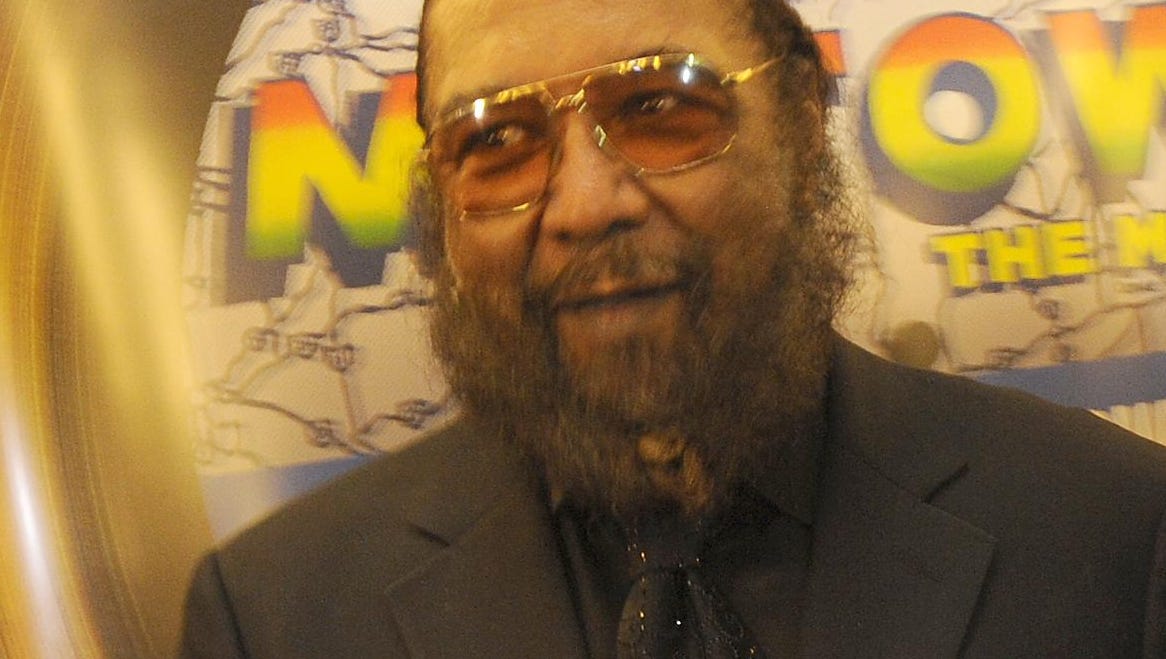Broke Motown great Eddie Holland faces $20M tax debt
Detroit – Legendary Motown songwriter Eddie Holland, who co-wrote the soundtrack of the baby boomer generation, including the hit “Stop! In the Name of Love,” is penniless and trying to stop the IRS from seizing his Social Security benefits to satisfy a $20 million tax debt.

A lawyer for the Rock & Roll Hall of Fame member filed a federal lawsuit Wednesday to hold on to the last asset remaining from a career that generated tens of millions of dollars and dozens of hit songs.
The seizure is creating an economic hardship for Holland, who is not receiving royalties from hundreds of songs and a dozen No. 1 hits, including the tunes “You Keep Me Hangin’ On,” “Baby Love,” “I Can’t Help Myself (Sugar Pie Honey Bunch),” “Nowhere to Run” and other songs performed by The Supremes, Four Tops and Marvin Gaye.
Federal court filings describe deep financial problems facing Holland, 78, and a fight among creditors over millions of dollars in royalties generated by hits Holland co-wrote decades ago — money the songwriter no longer receives because he pledged the cash in a series of business deals.
“It’s just staggering. He was so successful and along with being a great songwriter, was a savvy businessperson, or at least gave that impression,” said music journalist Peter Benjaminson, who has written four Motown-related books.
Holland is part of the famed Holland-Dozier-Holland songwriting team that defined the Motown sound and included brother Brian Holland and Lamont Dozier.
“They’re really the most successful songwriters of that generation,” Benjaminson said. “They rode the crest of the biggest development in pop music history — the union of black and white music that Motown brought about.”
The songs of Eddie Holland:
Eddie Holland, a Detroit native, lives in a condominium near Los Angeles, according to public records, and could not be reached for comment.
“Edward is a very capable businessman who ran into some difficult circumstances that can be attributed to other people,” his lawyer Neal Nusholtz said in an interview Wednesday.
In a court filing Wednesday, the lawyer sued to change how the government is collecting the songwriter’s Social Security benefits.
Holland’s only current source of income is Social Security and a series of tax levies have left him temporarily penniless, according to the lawyer.

“The government is supposed to release a levy if it determines that such levy is creating an economic hardship due to the financial condition of the taxpayer,” Nusholtz wrote.
Holland has requested a payment plan for delinquent taxes. The government has denied the request, the lawyer wrote.
Holland’s lawyer wants to stop the government from collecting more than 15 percent of the songwriter’s Social Security benefits.
The roots of Holland’s financial problems are detailed in a separate federal court case.
The government sued Holland in 2013, alleging he owed $18.4 million in delinquent taxes, interest and penalties. The taxes dated to 1991.
By late last year, the government said Holland’s tax bill had grown to more than $19.9 million.
The tax bill grew after Holland was involved in a $15 million deal in 1998 involving bonds backed by future song royalties. Holland received $8.4 million while another $1.7 million was spent on debt, mostly federal taxes, according to court files.
Song royalties went to a bank until the bonds were repaid.
In 2005, the deal was refinanced. Royal Bank of Scotland loaned one of Holland’s companies $14.6 million — a loan backed by song royalties.
By 2014, Holland’s company had defaulted on the loan and owed the bank approximately $8 million, according to court records.
Separately, lawyers claimed Holland owed $6 million for representing him in state court lawsuits in the 1980s and 1990s, according to court records.
In 2015, a year after the default, Holland’s company sold a catalog of songs to a private equity fund for $21 million. The money went into a pot and Holland’s creditors, including the government, the bank and the lawyers, have spent two years fighting to be first to tap the fund.
It is possible some of Holland’s tax debt will be paid out of the fund.
“My client put $21 million into the fund to cover his tax liability,” Nusholtz said Wednesday. “He does intend to go back and make more money in the music business as soon as these issues are resolved.”
rsnell@detroitnews.com